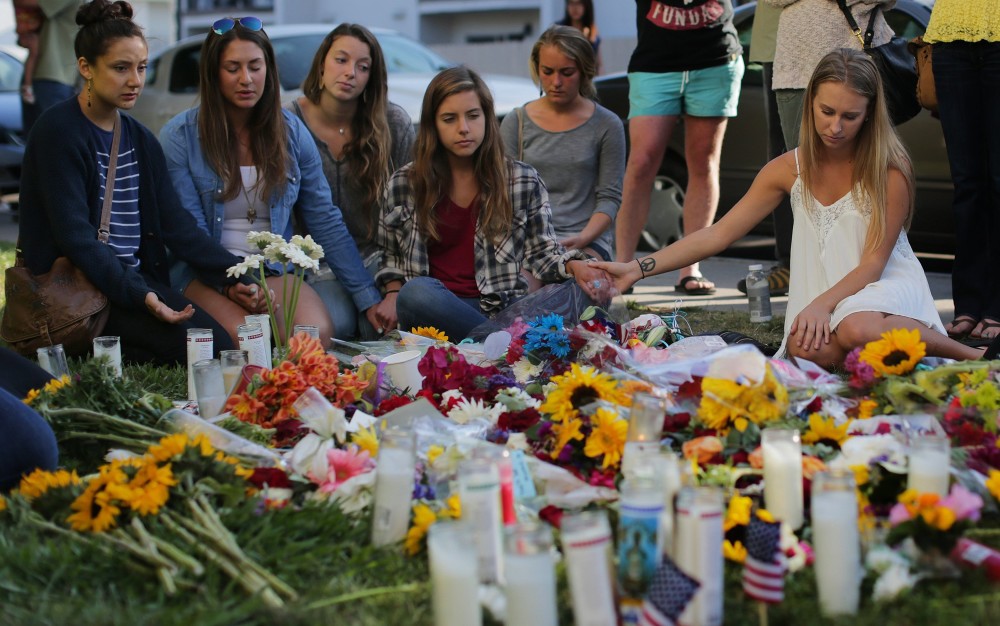By Matt Pearce
Los Angeles Times.
After the deadly Isla Vista rampage by an alienated young man who used social media to announce his plans to kill, social media struck back — with the hashtag #YesAllWomen.
Amid the public grief on Saturday and Sunday, women pointed out that the Santa Barbara-area attack was only a small part of the more commonplace violence that happens to women across the U.S. on a daily basis.
Typically, women know their attackers, and the #YesAllWomen hashtag became a place for women to talk about the kind of intimidation they’ve faced that doesn’t normally make the news:
–“when i was picked up by the throat and thrown down the stairs, responding officers told ME to apologize to HIM for crying #YesAllWomen”
–“Girls grow up knowing that it’s safer to give a fake phone number than to turn a guy down. #yesallwomen”
Part of the reason for the hashtag’s popularity was due to the message the Isla Vista suspect had broadcast before Friday night’s rampage.
Elliot Rodger had announced in a manifesto and in a YouTube video that he intended to kill women for rejecting him, and the initial stages of his attack reflected the plan that he laid out: First, he killed three people at his apartment building, then tried to attack a sorority before he targeted passersby, police say.
He ultimately killed six people and wounded 13 before his own death Friday night near UC Santa Barbara.
Statistically speaking, such rampages are rare, but man-on-woman violence is not. In 2012, an average of more than seven women were slain every day, and according to the most recent available federal statistics, American women usually know their attacker — who is usually male.
Women and girls are five times more likely than men to be violently attacked by an intimate partner, and women are also more than twice as likely as men to be killed by a partner.
The women who tweeted with the #YesAllWomen hashtag — which became one of Twitter’s top trending topics on Saturday evening — described attacks large and small, violent and verbal, that they’d received at the hands of men.
The user who created the hashtag has declined to talk to reporters, tweeting Sunday that “Twitter does not feel like a safe or happy person [sic] for me right now” and that she did not want the media spotlight. But she added that the spirit of the hashtag was for discussing “what ‘not all men’ might do, but women must fear.”
A few more excerpts are shared below. Although the users tweeted publicly, some users (including the creator) reported being harassed after sharing their messages; additionally, the Los Angeles Times does not normally identify victims of sexual assault, which is what many Twitter users described in their frank confessions.
–“#YesAllWomen because I had to explain to my friend that what she endured was rape, and not a drunken mistake”
–“#YesAllWomen because as teenage girl I shouldn’t have grown men wolf whistling and shouting at me as a walk down the street”
–“Because I wore a fake wedding ring when I waitressed. ‘Belonging’ to another man was the only way to get customers to back off. #YesAllWomen”
–“When I had a seizure in my home, the EMS guys asked my roommates if it was possible I was trying to get a boy’s attention. #YesAllWomen”
–“Because ‘Text me and let me know you got home safe’ is standard, necessary and normal. #YesAllWomen”
–“#YesAllWomen applies to this woman, remembering my ex with raised fist telling me how much I deserved to get punched in the face.”
–“#YesAllWomen i shouldnt have to worry about what i wear to school or in public so i wont get the wrong attention from males”
Victims of domestic violence can call the National Domestic Violence Hotline at 1-800-799-7233, and victims of sexual assault can call the National Sexual Assault Hotline at 1-800-656-HOPE.














































































































































































































































































































































































